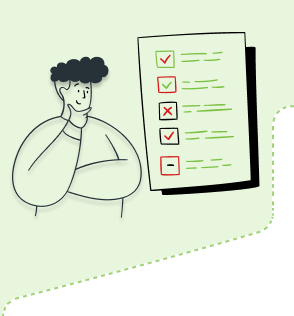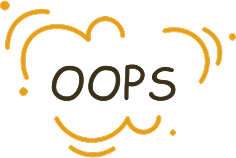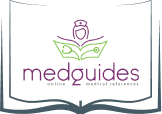
Courses

Join now

Courses

Join now
NATIONAL AND STATE NURSING EXAM- MCQ _MG_00 155

“ Your score is /25 ”
0
25
Show Answer
1. The doctrine of informed consent deals with:
a. Full disclosure of all relevant facts to the patient
b. Patient confidentially.
c. Notification of diseases
d. Informing higher authorities about the patient’s condition.
Answer: a. Full disclosure of all relevant facts to the patient
Description:Informed consent is taken from the patient or significant others before conducting any type of invasive procedure to communicate full disclosure of relevant facts regarding the procedure. In this the patient and/or their attendants are informed about the conditions of the patient along with the possible treatment stragies and the expected prognosis.
2. Which of the following is not an ethical principle?
a. Non-maleficence
b. Justice
c. Autonomy
d. Non-beneficence
Answer: d. Non-beneficence
Description:"Non-beneficence" is not an ethical principle. The correct answer is actually: d. Beneficence Beneficence is one of the fundamental ethical principles that focuses on promoting the well-being of individuals and acting in their best interests. Non-maleficence, on the other hand, is the principle that emphasizes the obligation to do no harm.
3. Patient whose life is threated and who is comatose is assumed to given what kind of consent for life sustaining treatment?
a. Direct
b. Implied
c. Expressed
d. Informed
Answer: b. Implied
Description:Implied consent is an assumption of permission to do something that is inferred from an individuals actions rather than explicitly provided. In case of emergency when delayed treatment would be dangerous, informed consent is not needed.
4. All of the following are true regarding deontology; EXCEPT:
a. It focuses on the consequences of actions.
b. It incorporates dutiful actions of an individual
c. It encompasses natural law
d. It is also known as formalism
Answer: a. It focuses on the consequences of actions.
Description:Deontology is an ethical theory says the morality of an action should be based on whether that action is right or wrong under a series of rules, rather than based on the consequences of the action.
5. Principles of ethical practice includes the following; EXCEPT:
a. Maleficence
b. Respect for autonomy
c. Beneficence
d. Justice
Answer: a. Maleficence
Description:"Beneficence" emphasizes the importance of promoting the well-being of individuals and acting in their best interests. "Justice" focuses on treating individuals fairly and equitably. "Respect for autonomy" emphasizes the importance of respecting individuals' right to make their own decisions. "Maleficence," on the other hand, is not a principle but rather the opposite of "non-maleficence," which is the principle of avoiding causing harm.
6. Immunization causes pain in child but it will also provide protection against certain diseases. Which of the following ethical principle is applicable here?
a. Autonomy.
b. Beneficence
c. Justice
d. Non-Maleficence
Answer: b. Beneficence
Description:The principle of beneficence emphasizes the obligation to act in a way that promotes the well-being and best interests of the individual. In the context described, the administration of immunization may cause temporary pain to the child, but the overall intention is to provide protection against potentially severe diseases. The benefits of immunization in terms of disease prevention and public health generally outweigh the temporary discomfort or pain caused by the procedure. This aligns with the principle of beneficence, as the action is taken with the aim of benefiting the child's health in the long run.
7. An intentional touching of the patient’s body without consent is termed:
a. Negligence
b. Malpractice
c. Battery
d. Assault
Answer: c. Battery
Description:Battery refers to the intentional and unauthorized touching of another person's body without their consent. It involves a deliberate physical act that results in the direct and non-consensual contact with another person's body. In a medical context, if a healthcare provider intentionally touches a patient's body without obtaining proper consent, it could be considered a case of battery.
8. Nurse fails to administer correct medication to the patient. This action is known as:
a. Negligence
b. Crime
c. Tort
d. Battery.
Answer: a. Negligence
Description:Negligence refers to the failure to exercise the level of care that a reasonably prudent person would have exercised in similar circumstances. In a healthcare context, it involves a breach of the duty of care owed to a patient, resulting in harm or injury due to the healthcare provider's failure to meet the standard of care expected of them. In the scenario you provided, a nurse failing to administer the correct medication to a patient would typically be considered a case of negligence.
9. When a nurse enters the patient’s room for administering medications, when notices that the patients food remised on the table. Helping the patient in providing food and then administering the medication is an act of:
a. Beneficence
b. Maleficence
c. Empathy.
d. Non-beneficence
Answer: a. Beneficence
Description:Beneficence is defined as an act of charity, mercy, and kindness with a strong connotation of doing good to other including moral obligation. Non-maleficence means to do no harm. Maleficence is the act of harming or evil. Empathy is the ability is understood and share the feelings of another.
10. Which of the following ethical principles refers to doing good to the client?
a. Beneficence
b. Non-maleficence
c. Autonomy
d. Justice
Answer: a. Beneficence
Description:• Beneficence: Doing good for the client • Non-maleficence: Doing no harm • Autonomy: Self-determination of client • Justice: Treat equality
11. The ethical principle to ‘do no harm’ is considered to be……………..principle
a. Justice
b. Autonomy
c. Non-maleficence
d. Beneficence
Answer: c. Non-maleficence
Description:The principle of non-maleficence, often summarized as "do no harm," emphasizes the ethical obligation to avoid causing harm or inflicting unnecessary suffering on individuals. This principle guides healthcare professionals to prioritize the avoidance of harm when making decisions about patient care.
12. Physician ordered blood transfusion for a client, but her father refused blood transfusion. Which among the following is the appropriate action by healthcare workers?
a. Do blood transfusion without listening to father
b. Get court order for blood transfusion
c. Try to make the father willing for blood transfusion
d. Abide by the father’s wishes and inform the healthcare provider.
Answer: d. Abide by the father’s wishes and inform the healthcare provider.
Description:Respecting the autonomy of the patient and their family members is an important ethical principle. In this case, if the father of the client refuses the blood transfusion, healthcare workers should respect his decision and inform the healthcare provider of the situation. It's crucial to engage in open communication and provide information about the risks and benefits of the treatment, but ultimately, the decision should align with the wishes of the patient (or their surrogate decision-maker) as long as they are deemed competent and able to make informed decisions. If there are legal or ethical concerns, seeking guidance from hospital ethics committees or legal advisors might be appropriate.
13. A nurse administered a wrong dose of medication to a client. Upon realizing the mistake, she immediately reported to the authority and did incidental reporting. This shows:
a. Accountability
b. Authority
c. Decision making
d. Responsibility
Answer: a. Accountability
Description:In this scenario, the nurse's immediate reporting of the error and taking responsibility for the mistake demonstrates accountability. Accountability refers to the willingness to accept responsibility for one's actions and decisions, especially when mistakes or errors occur. It involves owning up to the consequences of those actions and taking appropriate steps to rectify the situation. The nurse's actions in promptly reporting the wrong dose of medication reflect accountability for the mistake.
14. Which of the following nursing action is considered as malpractices?
a. Failing to notify a doctor when something is really wrong
b. Injuring a patient with equipment
c. Improper administration of medication
d. All of the above.
Answer: d. All of the above.
Description:All the mentioned actions – improper administration of medication, failing to notify a doctor when something is seriously wrong, and injuring a patient with equipment – are considered malpractices in the context of nursing. Malpractice refers to professional negligence or a breach of the standard of care that results in harm or injury to a patient. These actions can compromise patient safety and well-being and are violations of the ethical and professional responsibilities of nurses.
15. The patient’s right to refuse treatment is an example of:
a. Nursing council act
b. Common law
c. Statutory law
d. Religion clause
Answer: b. Common law
Description:The patient's right to refuse treatment is typically based on legal principles of common law, which is developed through court decisions and legal precedents. Common law recognizes the right of individuals to make autonomous decisions about their own medical treatment, including the right to refuse treatment even if it goes against medical advice. This right is grounded in principles of informed consent and bodily autonomy.
16. Which one of the following is not an attribute of a professional?
a. Concerned with quantity
b. Self-directed.
c. Concerned with quality of outcome
d. Independent
Answer: a. Concerned with quantity
Description:Professionals are typically concerned with the quality of their work and the outcomes they achieve rather than just the quantity. A professional's focus is on delivering high-quality results and meeting the standards of their field, rather than simply producing a large quantity of work. The other attributes listed – being concerned with the quality of the outcome, being independent, and being self-directed – are all associated with professionalism.
17. Which ethical principle promotes self-determination by the client?
a. Autonomy
c. Justice
d. Fidelity
b. Non-maleficence
Answer: a. Autonomy
Description:Autonomy means self-determination by the client. It means let the client and significant others to determine what they wish to do. Non-maleficence means doing no harm, justice means treat everyone equally, fidelity means faithfulness.
18. The intention of a nurse to do harm to the patient while providing care is the ethical principle of:
a. Fairness.
b. Beneficence
c. Non-maleficence
d. Justice
Answer: c. Non-maleficence
Description:The ethical principle of non-maleficence emphasizes the obligation to do no harm to the patient. It involves avoiding actions that could potentially harm the patient or cause unnecessary suffering. Intentionally causing harm to a patient while providing care goes against the principle of non-maleficence. "Beneficence" is the principle of promoting the well-being of the patient, "justice" is about fairness and equitable treatment, and "fairness" is a general concept related to just and equitable behavior.
19. Which of the following is the nurse’s best legal safeguard?
a. Collective bargaining
b. Competent practice
c. Patient education
d. Written or implied contracts
Answer: b. Competent practice
Description:Competent practice refers to providing care within the scope of one's knowledge, skills, and abilities while adhering to professional standards. It involves staying up-to-date with the latest evidence-based practices and following established protocols and guidelines. Competent practice is a nurse's best legal safeguard because it reduces the risk of errors and adverse outcomes, which can help prevent legal issues and malpractice claims.
20. Code of ethics for registered nurse defines the:
a. Uniformity of care to all clients.
b. Principles by which nurses’ provide care to their clients
c. Protocols to be followed during nursing procedures
d. All of the above
Answer: b. Principles by which nurses’ provide care to their clients
Description:The code of ethics for registered nurses outlines the ethical principles and guidelines that govern the professional behavior and decision-making of nurses. It defines the ethical standards and values that nurses should adhere to when providing care to their clients. The code of ethics serves as a framework for promoting safe, competent, and ethical nursing practice.
21. Which values of nursing practice refer to the act of selfless concern of a nurse for the wellbeing of patient?
a. Empathy
b. Compassion
c. Altruism
d. Autonomy
Answer: c. Altruism
Description:The world altruism refers to the genuine selfless kind of concern for the other’s goodness and wellbeing.
22. Among the following professional values, which value speaks about the respect for uniqueness of the individual considering their personal and cultural values?
a. Social justice
b. Validity
c. Social norms
d. Human dignity
Answer: d. Human dignity
Description:Among the provided options, the value that speaks about the respect for the uniqueness of the individual considering their personal and cultural values is: d. Human dignity Human dignity refers to the inherent worth and value of every individual. Respecting human dignity involves recognizing and honoring the uniqueness of each person, including their personal beliefs, cultural values, and individual characteristics. It underlines the importance of treating individuals with respect, regardless of their background or circumstances.
23. Registered Nurse had various rights to practice and perform their sound skills in the clinical settings. Among the rights, which of the following values refers to the right of self-determination?
a. Justice
c. Autonomy
b. Integrity
d. Dignity
Answer: c. Autonomy
Description:Autonomy refers to the right of individuals to make their own decisions and have control over their own bodies and lives. In the context of healthcare, patient autonomy involves respecting the patient's right to make informed decisions about their medical care, including the right to accept or refuse treatment. It is closely related to the principle of self-determination. Integrity, dignity, and justice are also important values in healthcare, but autonomy specifically refers to the right of self-determination.
24. Defamation that comes under the international tort consists of:
a. Malice and felony
b. Assault and battery
c. Fraud and center
d. Libel and slander
Answer: d. Libel and slander
Description:Defamation refers to the act of making false statements about someone that can harm their reputation. It can occur in two forms: libel (written or printed defamation) and slander (spoken defamation). Libel involves false statements that are communicated through written or printed words, pictures, or any other visual representation. Slander involves false spoken statements that can potentially harm a person's reputation.
25. Nurse should respect the patient’s right to make decision on their treatment is the professional value of:
a. Social justice
b. Integrity
c. Autonomy
d. Human dignity
Answer: c. Autonomy
Description:Autonomy refers to the right of individuals to make their own decisions regarding their medical care, based on their own preferences and values. Respecting autonomy involves providing patients with the necessary information and support to make informed decisions about their health while considering their wishes, values, and beliefs.
Back

Please Answer Minimum Five Questions


